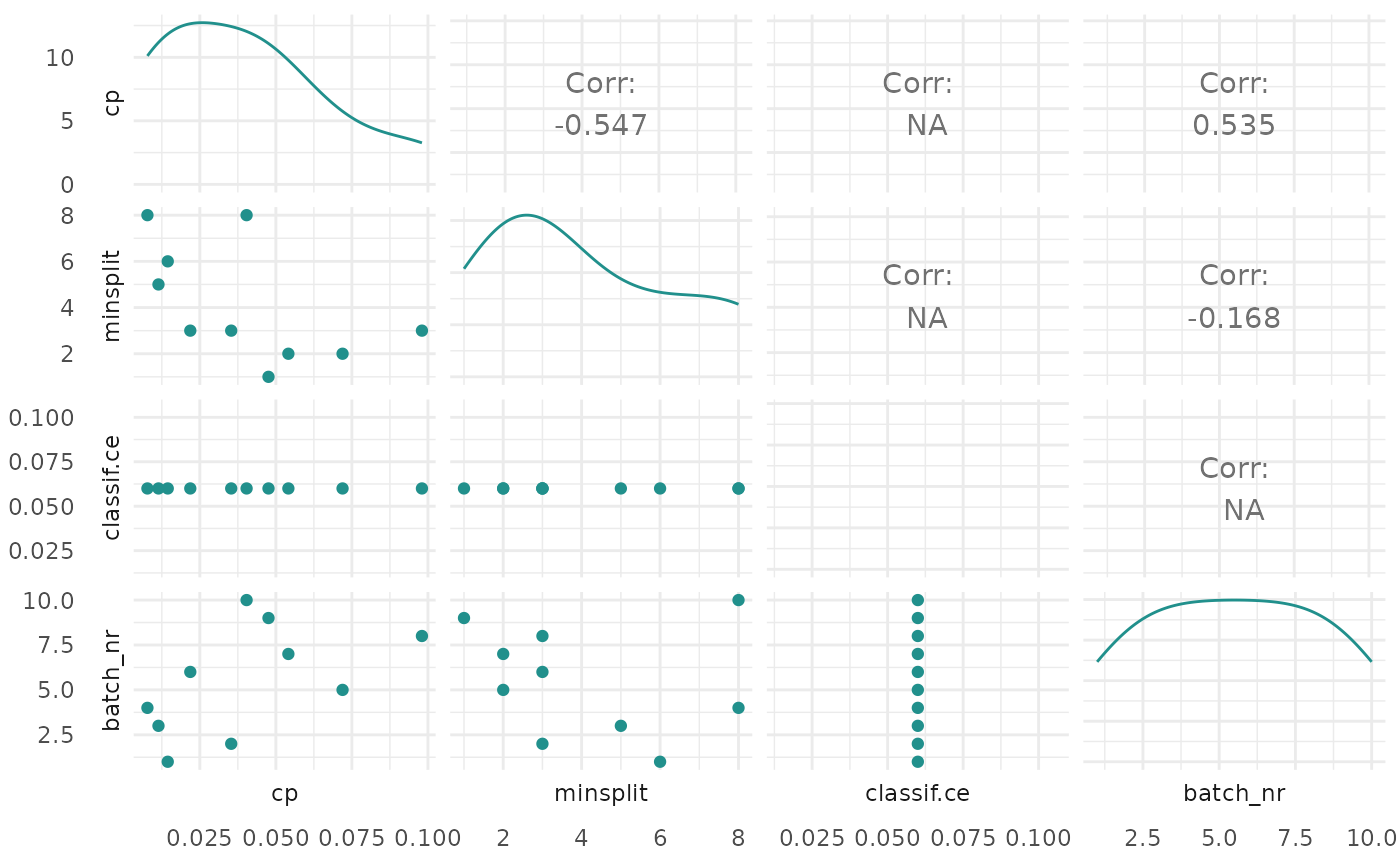
Plots for Tuning Instances
Source:R/TuningInstanceBatchSingleCrit.R
autoplot.TuningInstanceBatchSingleCrit.RdVisualizations for mlr3tuning::TuningInstanceBatchSingleCrit.
The argument type controls what kind of plot is drawn.
Possible choices are:
"marginal"(default): Scatter plots of x versus y. The color of the points shows the batch number."performance": Scatter plots of batch number versus y"parameter": Scatter plots of batch number versus input. The color of the points shows the y values."parallel": Parallel coordinates plot. hyperparameters are rescaled by(x - mean(x)) / sd(x)."points": Scatter plot of two x dimensions versus. The color of the points shows the y values."surface": Surface plot of two x dimensions versus y values. The y values are interpolated with the supplied mlr3::Learner."pairs": Plots all x and y values against each other."incumbent": Plots the incumbent versus the number of configurations.
Arguments
- object
- type
(character(1)):
Type of the plot. See description.- cols_x
(
character())
Column names of hyperparameters. By default, all untransformed hyperparameters are plotted. Transformed hyperparameters are prefixed withx_domain_.- trafo
(
logical(1))
IfFALSE(default), the untransformed hyperparameters are plotted. IfTRUE, the transformed hyperparameters are plotted.- learner
(mlr3::Learner)
Regression learner used to interpolate the data of the surface plot.- grid_resolution
(
numeric())
Resolution of the surface plot.- theme
(
ggplot2::theme())
Theggplot2::theme_minimal()is applied by default to all plots.- ...
(ignored).
Examples
if (requireNamespace("mlr3tuning") && requireNamespace("patchwork")) {
library(mlr3tuning)
learner = lrn("classif.rpart")
learner$param_set$values$cp = to_tune(0.001, 0.1)
learner$param_set$values$minsplit = to_tune(1, 10)
instance = ti(
task = tsk("iris"),
learner = learner,
resampling = rsmp("holdout"),
measure = msr("classif.ce"),
terminator = trm("evals", n_evals = 10))
tuner = tnr("random_search")
tuner$optimize(instance)
# plot performance versus batch number
autoplot(instance, type = "performance")
# plot cp values versus performance
autoplot(instance, type = "marginal", cols_x = "cp")
# plot transformed parameter values versus batch number
autoplot(instance, type = "parameter", trafo = TRUE)
# plot parallel coordinates plot
autoplot(instance, type = "parallel")
# plot pairs
autoplot(instance, type = "pairs")
}
#> Warning: the standard deviation is zero
#> Warning: the standard deviation is zero
#> Warning: the standard deviation is zero
